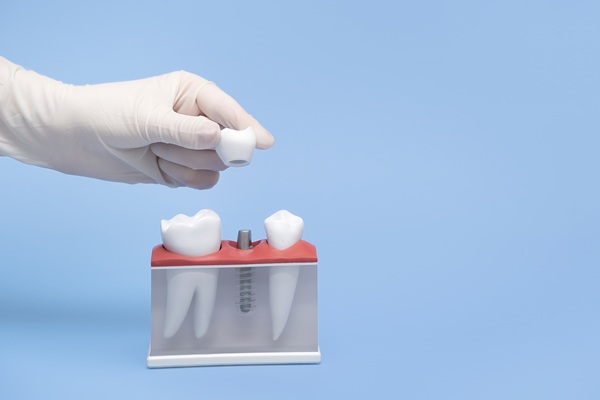Is It Painful to Get Dental Implants?

Having a surgical procedure can be scary because some part of your body has to be cut open. Since getting dental implants means your jaw has to be cut, it makes sense that a lot of people are wary about the procedure and the amount of pain it will cause.
How painful can it get?
One of the biggest reasons people believe dental implant surgery is painful is because of what they see on the internet. A quick search for dental implant surgery will net you plenty of pictures or people getting holes drilled into their gums, which looks quite scary if you do not know what is going on. However, there is no reason to worry because the procedure itself is not as painful as it looks.
Let us use a scale of one to 10, with one representing minimal discomfort and 10 representing excruciating pain. A straightforward dental implant, for a patient with good bones and who does not need a lot of soft tissue surgery, has a pain level between two and three in the first 24 to 48 hours, which means over-the-counter medication like Tylenol or Advil will take care of any discomfort they are feeling.
The pain that patients feel when they get dental implant surgery is actually not from the hole made in the bone or the placement of the implant — the pain usually comes from the soft tissue manipulation that occurs during the process.
With that in mind, dental implants that do not require lifting the gum tissue are actually painless, with patients reporting pain levels of one to two after the procedure. If a small flap of gum tissue is lifted, the pain level is at three or four for the first night and subsides after that.
If the bone has to be grafted for the procedure, the pain level is higher and patients are at a 5 five or six in terms of the pain they experience for the first three days after the procedure, which will require giving them a strong pain reliever.
Regardless of how much gum tissue is lifted or if grafting is required, the pain lasts anywhere from one to three days and subsides after that.
Another factor in the amount of pain experienced is the patient’s individual threshold for pain. Some people can endure more pain than others, which means even if two different people get the same procedure, their levels of pain will be different.
After your dental implant procedure
After the procedure, you will have difficulty eating regular food as your gums heal, which means you will need to eat soft foods for a while. You will also need to avoid caffeine and tobacco products to prevent implant failure and other complications.
You will need to schedule frequent appointments with your dentist so they can make sure you are healing properly and there are no complications from the procedure.
The bottom line
Dental implant surgery can be painful depending on how healthy your gums are. If you want to find out more about how painful the procedure will be, talk to your dentist and have them examine your gums to determine how much work they will have to do.
Are you considering dental implants in the Mountain View area? Get more dental implants information at https://smilesdental.com.
Recent Posts
Getting tooth implants is not the final phase of an implant restoration procedure. The stage is simple, but the recovery period can be uncomfortable. This part of the implant process is the time for the mouth heals and fuses to the implant post. The following guide covers what to expect during recovery and the steps…
Dental implant surgery involves the replacement of missing teeth with a surgically inserted metal post. This oral surgery is becoming increasingly popular every passing day. If you are considering dental implants, you will need oral surgery. You should prepare early for the procedures that may be involved.A patient may need oral surgery to resolve problems…
Dental implants and bridges can both be used to replace one or multiple missing teeth. Having multiple missing teeth can put a dent in one’s oral health. Patients who have lost a lot of teeth not only have trouble chewing but even smiling while out in social gatherings.The world of dentistry has evolved so much…
Dental implants are the gold standard in teeth replacement. These restorations are durable and biocompatible. Most people prefer durable and stable dental prosthetics to removable dentures. Implants owe their security to the prosthetic root and dental crown. If you want to know how the prosthetic root and crown help dental implants become stable and strong,…


